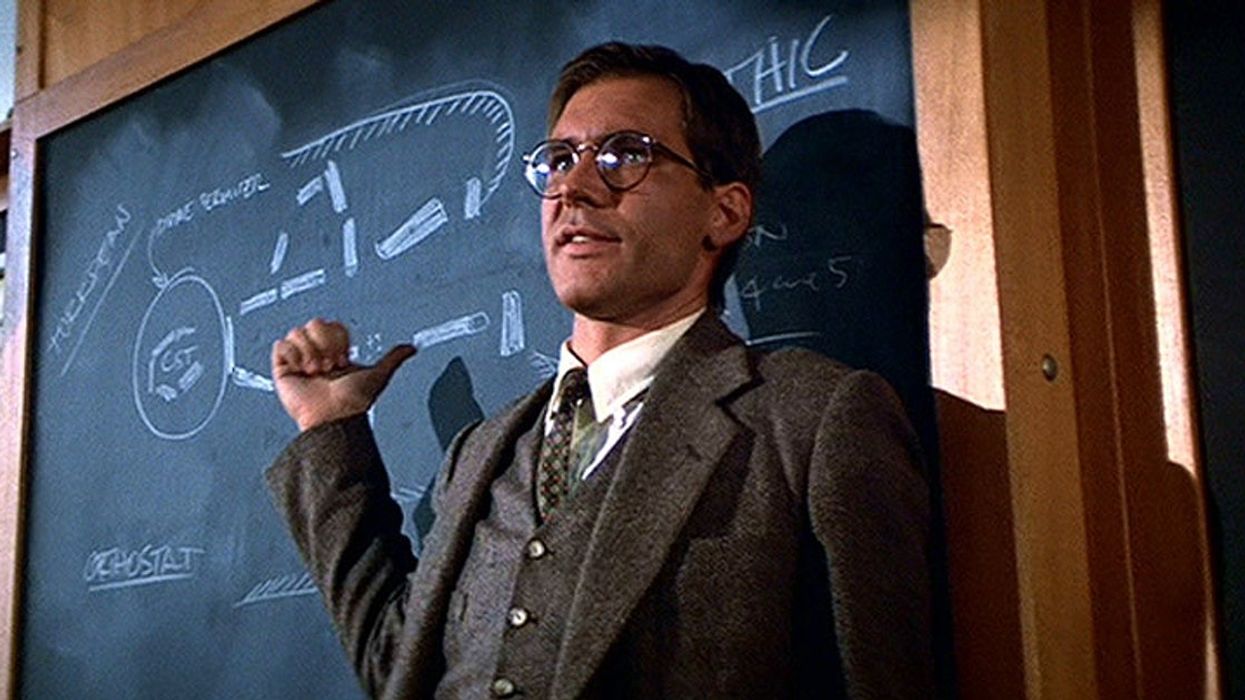What Is the Epistemological Definition?
If you want to study film and filmmaking, you should take an epistemological approach.

There's an old saying that goes something like, "The only person who knows a lot is the person who knows they know nothing."
Aside from feeling like word salad, there's a real core belief in there that knowledge is an ongoing journey. There is no way you could know it all. You have to keep learning.
Well, filmmaking is very similar to this philosophy. You can get better and better, learning more and more, but you will never know it all. You're just working long and hard enough to acquire the knowledge base to make the best decisions you can.
We call this the epistemological approach. It sounds fancy, but it's really not. It's much more introspective. This approach will help you develop characters, stories, and worlds.
But what is the definition of epistemological? And how does epistemology work in filmmaking as a whole?
Let's work this out together.

What Does "Epistemology" Mean?
Epistemology aims to tackle huge questions like, "What do we know?" and "What makes justified beliefs justified?" These major life-defining questions are fruitful for any creative. They can push stories themselves, or we can pick them apart to create wonderful works.
It all starts at the root of the word.
Epistemological Definition
Epistemological means ideas or actions relating to the theory of knowledge. The theory of knowledge is known as epistemology. It's a major branch of philosophy that questions a person's beliefs about the nature of human knowledge. It seeks to diagram the process of knowing and how it came to be.

Epistemology History
Where did this term come from? Well, the Greek words “episteme” and “logos” are its roots.
“Episteme” is translated to mean “knowledge,” and “logos” can be translated as an “argument” or “reason." So this is a knowledge argument or reasoning for people.
The term “epistemology” was coined only a few hundred years ago, but the idea of where our knowledge comes from and how it manifests is a question and philosophical argument that is as old as time.

The Four Core Epistemological Areas
Epistemology can be broken down into four areas that philosophers like to examine.
1. Knowledge
In short, knowledge is a cognitive success. It's knowing how to do something and then doing it well. So what makes us acquire this knowledge? Is it nature or nurture?
When it comes to filmmakers or writers, what do we know about our craft? What can we keep learning?
Also, what do our characters know? And who taught them?
2. Belief
When it comes to belief, we have to decide what we think. What do we think aside from our knowledge? And why do we believe that way? If you possess belief, is it founded or not?
In cinema studies, do we believe in authorial intention, or is a screenplay a literary artifact?
If your character has an internal struggle, find a way to make it come across as an external struggle so the audience has something to attach to and watch.
3. Truth
What is actually happening in reality? Truth is an essential item. It is the ultimate answer to some situations. Truth can have its own perspective, but the ultimate truth is a reality not everyone can see. Truth is fact.
Your screenplay is built up of individual story beats that create emotional reactions in the reader and viewer. These beats are based on classic screenplay structure. The beats help guide thecharacter arcs, story structure, and even your elevator pitch.
There must be truth in every beat, even if your characters don't know about it.
4. Justification
Justification plays at the very core of the epistemological definition. It is how we argue the three topics above. You have to justify truth, belief, and knowledge. You can do any of that with perception, reason, memory, and testimony, all of which you use to develop an argument.
Justification is also a burden to carry. You can be skeptical about truth or belief and need to test it.
As storytellers, we're often justifying what happens in our story based on the knowledge and beliefs our characters hold. And we're telling stories we want to have a greater truth.

Why Do Filmmakers Need to Understand the Epistemological Definition?
I think if we want to write about human beings and the world around us, we need to study this branch of philosophy, even if we just understand the surface level of its teachings. This can help us dig into the people in the story as well as the events, revealing much about our intention and where the story goes.
These epistemological views unlock the secrets of the external world.
As filmmakers, we are constantly searching for stories that connect. If we know what makes us tick or we want to unravel that, this study can put us in tune with areas of our stories we never approached before.
Summing Up "What Does Epistemology Mean?"
Now that you have a handle on this philosophical idea, it's time to put it to the test in your own work. Pick apart your characters and your story. Is there a belief system in place? Are you in need of more justification for actions?
At the end of the day, this all boils down to knowledge. Not just what you know to execute your work, but what the characters in your story know that justifies their actions or the arc or the tale.
With all this in mind, I can't wait to see what you come up with next!
- These Screenwriting Lessons Are the Crash Course You Didn't Know You Needed ›
- We Uncover The Metaphysical Meaning ›
- Watch: What Does 'The Matrix' Owe Plato? ›











